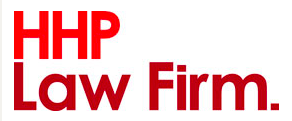11 September, 2017
On 21 July 2017, the Government of the Republic Indonesia issued Regulation No. 29 of 2017 on Procedure of Payment and Delivery of Goods in respect of Export and Import Activities ("Regulation 29") which came into effect on 24 July 2017.
Regulation 29 is the implementing regulation of Article 40 paragraph (2) of Law No. 7 of 2014 on Trade ("Trade Law"), and revokes Article 3 of Government Regulation No. 1 of 1982 as lastly amended by Regulation No. 24 of 1985 on Implementation of Export, Import and Foreign Exchange Trade.
The government considers it is necessary to provide a clear provision on the procedure of payment and delivery of goods in respect of export and import activities both to protect the stakeholders in Indonesia and to improve the national economy in general.
As Regulation 29 is a government regulation, it appears that it only provides principles and general guidance rather than giving details of implementation. Thus, until clearer implementing regulations are issued, it may be subject to multiple interpretations.
What the Regulation Says
In brief, the following are the key points of Regulation 29, which will be elaborated further below:
|
Key Highlights |
Related goods |
What the Regulation Says |
|
Emphasis on 'Certain Goods' |
Certain exported goods |
Strategic goods and other important goods that are limited for export or free for export |
|
Certain imported goods |
Staple goods, strategic goods and other important goods that are restricted for import or free to be imported |
|
Key Highlights |
Related goods |
What the Regulation Says |
|
Payment Method |
Exported goods |
cash, Letter of Credit ("L/C") or other type of payments |
|
Certain exported goods |
L/C |
|
|
Imported goods |
Imbal Dagang ("Counter- Trade") or other types of payment |
|
Certain imported goods |
Counter-Trade |
|
|
Delivery Term |
– Exported goods – Imported goods |
– Free on Board ("FOB") – Cost, Insurance and Freight ("CIF") – Other delivery terms |
Certain exported goods |
CIF |
|
|
Certain imported goods |
FOB |
|
Sanction |
– Certain exported goods – Certain imported goods |
– Warning letter |
(i) Payment of Goods
Regulation 29 states that payment for exported goods can be done by cash, L/C or other types of payment. Payment for imported goods can be done by Counter-Trade or other types of payment.
Counter-Trade as mentioned above, is a payment method where the seller has to import a certain amount of goods in exchange for a certain amount of its exported goods. It can be in the form of bartering, counter-purchasing, buying back and offsetting. Meanwhile, other types of payment can be in the form of advance payment, open account, collection and consignment.
The regulation also specifically stipulates the payment procedure for 'certain' exported and imported goods as follows:
- Payment of certain exported goods must be done by L/C.
- Payment of certain imported goods must be done by Counter-Trade.
From a customs perspective, the Customs Law and Ministry of Finance Regulation No.160/PMK.04/2010 as last amended by Regulation No. 34/PMK.04/2016 on Customs Valuation for the Calculation of Import Duty ("Regulation 160") provides that the customs value to calculate import duty should be the transaction value of the imported goods. The value will generally be the price of a buy and sell transaction under a free trade condition.
Therefore, there may be a practical issue as the payment for certain imported goods in the form of Counter-Trade is not yet common.
(ii) Delivery of Goods
Based on Regulation 29, exporters and importers can use the following terms for the delivery of goods:
- Free on Board ("FOB")
- Cost and Freight ("CFR")
- Cost, Insurance and Freight ("CIF")
- Other delivery terms
The new feature with regard to the delivery of goods is that there are specific provisions for certain exported and imported goods as follows:
- Exporter must use "CIF" delivery term for certain exported goods.
- Importer must use "FOB" delivery term for certain imported goods.
The main reasons the government stipulates these provisions are because in general, exporters use the term "FOB" when exporting goods, while importers use the term "CIF" when importing goods as mandated in Regulation 160 where it is the customs value that must be declared in the customs declaration form ("PIB") is "CIF".
Thus, importers usually already use the term "CIF" in commercial invoices and contracts with offshore companies to provide the insurance and freight services so they can easily declare the same amount in the invoice and the PIB.
Because of the conditions above, it may be difficult for domestic insurance companies and freight forwarder companies to develop (as the cost and freight have been fixed in advance). Therefore, the government specifically stipulates these provisions in order to protect those domestic companies.
It appears that the companies that import certain goods are encouraged to use the term "FOB" in their commercial invoices and use domestic companies for freight and insurance. In addition, companies that export certain goods are encouraged to use the term "CIF" in the commercial invoices to the buyers.
Currently, it remains unclear how this provision will be implemented. However, one of the possible outcomes (eg, during a customs audit), there may be an under-declaration of customs value simply because the value declared during the clearance is FOB value based on the commercial FOB arrangement used.
(iii) The Emphasis on 'Certain' Exported and Imported Goods
The regulation itself repeatedly states certain exported and imported goods (as also mentioned above).
Unfortunately, it only broadly defines the meaning of certain exported goods as strategic goods and other important goods that are limited for export or free for export.
The regulation also broadly defines certain imported goods as staple goods, strategic goods and other important goods that are restricted for import or free to be imported.
This alone could mean that there may be further implementing regulations that will define certain exported and imported goods, which may lead to the question of how to streamline this with the current regulation.
As an example, Ministry of Trade Regulation No. 04/M-DAG/PER/1/2015 ("Regulation 04") stipulates the provisions on the use of Letters of Credit for export of certain goods. Based on the Appendix of Regulation 04, certain exported goods are listed and categorized as mineral, coal, oil and gas, and palm oil products.
Further, Ministry of Trade Regulation No. 87/M-DAG/PER/10/2015 defines certain goods as products such as food and beverages, traditional medicines, health supplements, cosmetics, household health appliances, apparel and textile, footwear, electronics, and toys. From the outset, it appears to us that the list in this regulation may be expanded to cover the definition above, as mandated by the Regulation.
(iv) Sanction
The failure to comply with the regulation or violation of provisions on procedure of payment and delivery of goods for certain exported goods/certain imported goods will be subject to administrative sanctions such as:
- Warning letter
- Termination of activities
- Penalty
- Suspension of license
- Revocation of license
We may expect further implementing regulation on the sanctions.
Conclusion – Impact for Importers and Exporters
With the issuance of this regulation, exporters and importers must comply with the procedure for payment and delivery of goods, especially for export and import of certain goods. Otherwise, they may receive an administrative sanction as listed above.
However, as clearer implementing regNewulations on procedure of payment and delivery of certain exported goods and certain imported goods have not been issued, this regulation may still be open to multiple interpretations.
For further information, please contact:

.jpg)





